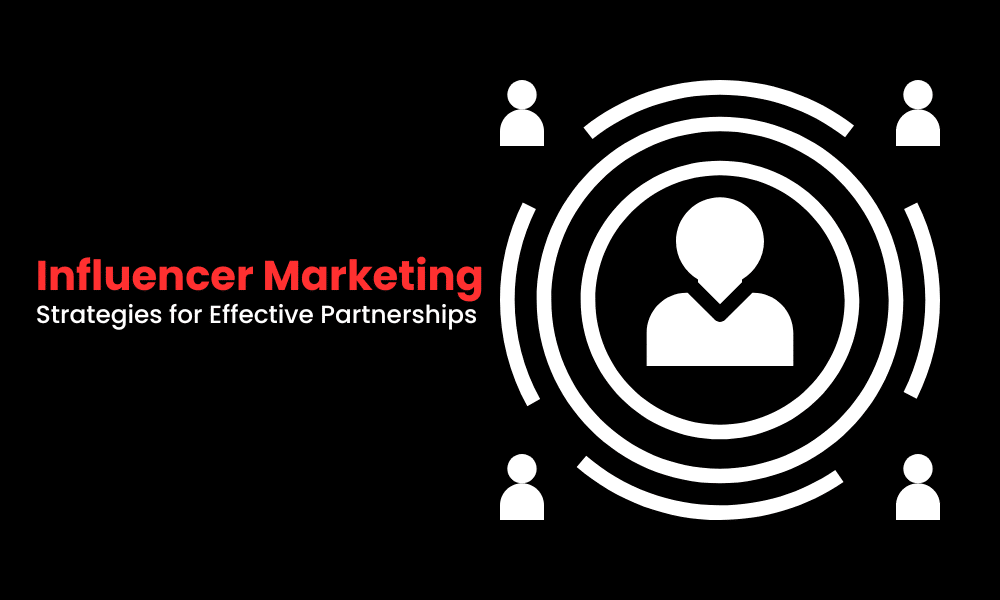In today’s dynamic digital landscape, influencer marketing stands out as a potent avenue for brands to establish authentic connections with their target audience. Collaborating with influencers who wield niche expertise and a loyal following can significantly amplify a brand’s reach and credibility. However, navigating successful influencer partnerships demands meticulous planning and execution. Let’s delve into some strategies for effectively harnessing the power of influencer marketing.
Understanding Influencer Marketing
At its core, influencer marketing entails partnering with individuals who possess substantial followings and influence within specific niches or industries. These influencers span a spectrum, ranging from celebrities and social media luminaries to industry mavens and micro-influencers. By leveraging the trust and authority they command among their audience, brands can tap into new markets and drive unparalleled engagement.
Identifying the Right Influencers
The cornerstone of a fruitful influencer marketing campaign lies in pinpointing the ideal influencers who resonate with your brand ethos, target demographic, and marketing objectives. Rather than fixating solely on follower counts, consider variables such as audience demographics, engagement metrics, and content resonance. Micro-influencers, despite their smaller followings, often deliver superior ROI due to their highly engaged audiences.
Insight: According to a report by Influencer Marketing Hub, micro-influencers deliver 60% higher engagement rates than macro-influencers.
Establishing Clear Objectives and KPIs
Before embarking on an influencer partnership, it’s imperative to delineate clear objectives and key performance indicators (KPIs) for your campaign. Whether your aim is to augment brand awareness, drive website traffic, or bolster sales, aligning your objectives with measurable metrics is essential for gauging campaign success. These metrics could encompass reach, engagement rates, click-through rates, and conversions.
Insight: A study by Linqia found that 39% of marketers cite increasing brand awareness as their primary goal for influencer marketing campaigns.
Cultivating Authentic Relationships
Authenticity lies at the heart of influencer marketing. Encourage influencers to craft genuine, relatable content that resonates with their audience while portraying your brand positively. Eschew overly promotional or scripted content that risks compromising authenticity. Instead, empower influencers to share candid opinions and experiences pertaining to your products or services.
Insight: According to a survey by Stackla, 86% of consumers value authenticity when deciding which brands they like and support.
Providing Creative Freedom
Grant influencers creative autonomy to conceive content that aligns with their personal brand and aesthetic. While it’s crucial to furnish guidelines and brand messaging, stifling creativity can undermine the authenticity of their content. Entrusting influencers to devise engaging and compelling content that resonates with their audience can yield more profound results.
Insight: A study by SocialPubli found that 63% of influencers believe that creative freedom is the most crucial factor in a successful influencer marketing collaboration.
Fostering Long-Term Partnerships
Cultivating enduring relationships with influencers can yield substantial dividends for your brand. Invest in nurturing relationships beyond individual campaigns by offering ongoing support, collaborative opportunities, and exclusive access to new products or events. Authentic partnerships founded on mutual respect and trust engender more genuine and impactful content.
Insight: According to a report by Influencer Marketing Hub, 49% of marketers plan to increase their influencer marketing budgets over the next 12 months due to the effectiveness of long-term partnerships.
Measuring and Analyzing Results
Upon launching your influencer campaign, diligently monitor and analyse performance metrics to gauge its efficacy. Utilise tools and analytics platforms to track key metrics such as reach, engagement, website traffic, and conversions. Scrutinising campaign data furnishes invaluable insights into audience preferences and informs future influencer marketing endeavors.
Insight: A survey by Rakuten Marketing found that 68% of marketers believe that measuring the ROI of influencer marketing is their top challenge.
Conclusion
Influencer marketing remains an indispensable strategy for brands seeking to forge authentic connections with consumers in today’s competitive digital milieu. By identifying suitable influencers, delineating clear objectives, nurturing authentic relationships, and scrutinising results, businesses can effectively harness the power of influencer marketing. By integrating influencer partnerships into your marketing arsenal, you can magnify your brand’s reach, credibility, and engagement, propelling it to new heights in the digital realm.




Leave a reply